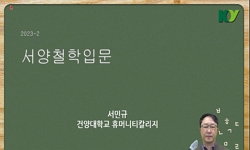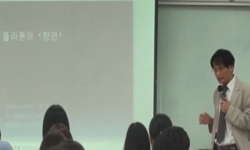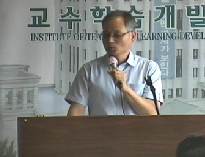이 글에서는 중국·한국 근대불교에서 서양사상을 어떻게 수용하고 비판하였는가를 살펴보았다. 중국 근대불교에서는 웅십력(熊十力, 1885-1968)이 유식불교의 종자와 현행의 분리, ‘본체와 ...
http://chineseinput.net/에서 pinyin(병음)방식으로 중국어를 변환할 수 있습니다.
변환된 중국어를 복사하여 사용하시면 됩니다.
- 中文 을 입력하시려면 zhongwen을 입력하시고 space를누르시면됩니다.
- 北京 을 입력하시려면 beijing을 입력하시고 space를 누르시면 됩니다.

한·중 근현대불교의 서양철학 수용과 비판 = Acceptance and Criticism of Western Philosophy of Modern and Contemporary Buddhism in Korea and China
한글로보기https://www.riss.kr/link?id=A108000043
- 저자
- 발행기관
- 학술지명
- 권호사항
-
발행연도
2021
-
작성언어
-
-
주제어
근현대불교 ; 웅십력 ; 熊十力 ; 플라톤 ; 베르그송 ; 양계초 ; 梁啓超 ; 칸트 ; 스펜서 ; 사회진화론 ; 한용운 ; 韓龍雲 ; 평등주의 ; 『불교』 잡지 ; Modern Buddhism ; Xiong Xhi-li ; Plato ; Bergson ; Yang Qichao ; Kant ; Spencer ; the theory of Social Evolution ; Han Yong-un ; Equalism ; Magazine Buddhism
-
등재정보
KCI등재
-
자료형태
학술저널
-
수록면
43-82(40쪽)
-
KCI 피인용횟수
0
- DOI식별코드
- 제공처
- 소장기관
-
0
상세조회 -
0
다운로드
부가정보
국문 초록 (Abstract)
중국 근대불교에서는 웅십력(熊十力, 1885-1968)이 유식불교의 종자와 현행의 분리, ‘본체와 현상의 이분(二分)’을 비판하였는데, 이는 플라톤(Platon)으로 대표되는 서양 형이상학을 표적삼은 것이었다. 서양 생명철학인 베르그송(Bergson) 철학에 대해서는 우주 변화를 생명 에너지의 흐름으로 본 것을 긍정하였지만, 도덕적 성향이 없는 맹목적인 생명 충동을 중시한 점을 비판하였다. 양계초(梁啓超, 1873-1929)는 칸트(I.Kant) 철학을 소개하고 유식불교적으로 재해석하였다. 칸트의 감성·오성 개념을 유식불교의 전오식·제6의식에, 불교 ‘진여’를 칸트의 ‘진아’에, ‘무명’을 칸트의 ‘현상적 나’에 배대하였다. 그는 또한 자립적 국가로서 힘을 키워야 한다고 생각하여 스펜서(Spencer)의 사회진화론을 수용하였다. 사회진화론과 불교의 일치성을 전제로 그 둘을 결합하였고, 유식불교의 종자설을 활용하여 진화를 국가와 개인의 관계로 설명하였다.
한국 근대불교에서 한용운(韓龍雲, 1879-1944)은 사회진화론의 수용과 비판이라는 이중성이 존재하였다. 그는 사회진화론을 현실적 이데올로기로 긍정하여 불교계 계몽을 위해 활용하는 한편, 양계초식의 국가주의적 사회진화론을 비판하고 불성과 진여의 깨달음에 근거한 자유· 평등 사상을 제시하였다. 한국 근대 불교잡지에서는 서양 사상을 다양하게 수용하였는데, 그를 통해 불교를 철학화하고 실천적 종교로서의 불교를 모색하였다. 백성욱의 ‘불교순전철학’, 김소하의 쇼펜하우어 철학의 수용, 김창운의 ‘개인’의 발견 등이 그 예이다.
이 글에서는 중국·한국 근대불교에서 서양사상을 어떻게 수용하고 비판하였는가를 살펴보았다.
중국 근대불교에서는 웅십력(熊十力, 1885-1968)이 유식불교의 종자와 현행의 분리, ‘본체와 현상의 이분(二分)’을 비판하였는데, 이는 플라톤(Platon)으로 대표되는 서양 형이상학을 표적삼은 것이었다. 서양 생명철학인 베르그송(Bergson) 철학에 대해서는 우주 변화를 생명 에너지의 흐름으로 본 것을 긍정하였지만, 도덕적 성향이 없는 맹목적인 생명 충동을 중시한 점을 비판하였다. 양계초(梁啓超, 1873-1929)는 칸트(I.Kant) 철학을 소개하고 유식불교적으로 재해석하였다. 칸트의 감성·오성 개념을 유식불교의 전오식·제6의식에, 불교 ‘진여’를 칸트의 ‘진아’에, ‘무명’을 칸트의 ‘현상적 나’에 배대하였다. 그는 또한 자립적 국가로서 힘을 키워야 한다고 생각하여 스펜서(Spencer)의 사회진화론을 수용하였다. 사회진화론과 불교의 일치성을 전제로 그 둘을 결합하였고, 유식불교의 종자설을 활용하여 진화를 국가와 개인의 관계로 설명하였다.
한국 근대불교에서 한용운(韓龍雲, 1879-1944)은 사회진화론의 수용과 비판이라는 이중성이 존재하였다. 그는 사회진화론을 현실적 이데올로기로 긍정하여 불교계 계몽을 위해 활용하는 한편, 양계초식의 국가주의적 사회진화론을 비판하고 불성과 진여의 깨달음에 근거한 자유· 평등 사상을 제시하였다. 한국 근대 불교잡지에서는 서양 사상을 다양하게 수용하였는데, 그를 통해 불교를 철학화하고 실천적 종교로서의 불교를 모색하였다. 백성욱의 ‘불교순전철학’, 김소하의 쇼펜하우어 철학의 수용, 김창운의 ‘개인’의 발견 등이 그 예이다.
다국어 초록 (Multilingual Abstract)
In modern Chinese Buddhism, Xiong Xhi - li(熊十力, 1885-1968) criticized the separation between the seed and the present in Consciousness - Only Buddhism (唯識佛敎) and ‘the difference between subject and phenomenon’(體用二分), which targeted Western metaphysics represented by Platon. As for Bergson's philosophy, which is Western philosophy of life, he affirmed the view of cosmic change as a flow of life energy, but criticized the emphasis on blind life impulses without moral inclinations. Yang Qichao(梁啓超, 1873-1929) introduced I.Kant's philosophy and reinterpreted it in a Buddhist way. Kant's construct of sensibility and understanding was assigned to the all five consciousness and the sixth consciousness of enlightened Buddhism: Buddhism's ‘real’ to Kant's ‘true self’, and ‘ignorance’ to Kant's ‘phenomenal self.’ He also accepted Spencer's theory of social evolution, believing that it should develop its power as an independent state. He combined the social evolution theory and Buddhism on the premise of conformity, and descrived evolution as the relationship between the state and the individual using the seed theory of Consciousness - Only Buddhism.
In Korean modern Buddhism, Han Yong - un(韓龍雲, 1879-1944) had the duality of accepting and criticizing the theory of social evolution. He affirmed the theory of social evolution as a realistic ideology and used it for the enlightenment of Buddhist monks, while criticizing the nationalistic social evolution theory of the poultry and herbivory system. He also presented the idea of freedom and equality based on the realization of Buddhahood and truth. Korean modern Buddhist magazines accepted Western ideas in various ways, and through them Buddhism was philosophicalized and Buddhism as a practical religion was sought. Examples include Baek Sung - wook's ‘Pure Buddhist Philosophy’, Kim So - ha's acceptance of Schopenhauer's philosophy, and Kim Chang - woon's discovery of the ‘individual.’
This article examines how Western thought was accepted and criticized in Chinese and Korean modern Buddhism. In modern Chinese Buddhism, Xiong Xhi - li(熊十力, 1885-1968) criticized the separation between the seed and the present in Consciousness -...
This article examines how Western thought was accepted and criticized in Chinese and Korean modern Buddhism.
In modern Chinese Buddhism, Xiong Xhi - li(熊十力, 1885-1968) criticized the separation between the seed and the present in Consciousness - Only Buddhism (唯識佛敎) and ‘the difference between subject and phenomenon’(體用二分), which targeted Western metaphysics represented by Platon. As for Bergson's philosophy, which is Western philosophy of life, he affirmed the view of cosmic change as a flow of life energy, but criticized the emphasis on blind life impulses without moral inclinations. Yang Qichao(梁啓超, 1873-1929) introduced I.Kant's philosophy and reinterpreted it in a Buddhist way. Kant's construct of sensibility and understanding was assigned to the all five consciousness and the sixth consciousness of enlightened Buddhism: Buddhism's ‘real’ to Kant's ‘true self’, and ‘ignorance’ to Kant's ‘phenomenal self.’ He also accepted Spencer's theory of social evolution, believing that it should develop its power as an independent state. He combined the social evolution theory and Buddhism on the premise of conformity, and descrived evolution as the relationship between the state and the individual using the seed theory of Consciousness - Only Buddhism.
In Korean modern Buddhism, Han Yong - un(韓龍雲, 1879-1944) had the duality of accepting and criticizing the theory of social evolution. He affirmed the theory of social evolution as a realistic ideology and used it for the enlightenment of Buddhist monks, while criticizing the nationalistic social evolution theory of the poultry and herbivory system. He also presented the idea of freedom and equality based on the realization of Buddhahood and truth. Korean modern Buddhist magazines accepted Western ideas in various ways, and through them Buddhism was philosophicalized and Buddhism as a practical religion was sought. Examples include Baek Sung - wook's ‘Pure Buddhist Philosophy’, Kim So - ha's acceptance of Schopenhauer's philosophy, and Kim Chang - woon's discovery of the ‘individual.’
참고문헌 (Reference)
1 金春男, "梁啓超를 통한 萬海의 西歐思想 수용 : 朝鮮 佛敎維新論을 中心으로" 동국대학교 대학원 1985
2 안병직, "한용운" 한길사 1979
3 양은용, "한국사사상대계 6" 한국정신문화연구원 1993
4 김광식, "한국근대불교의 현실인식" 민족사. 2000
5 김광식, "한국근대불교사연구" 민족사. 1996
6 김영진, "한국 근대 불교학 방법론의 등장과 불교사 서술의 의미" 한국학연구소 (23) : 85-115, 2010
7 김제란, "한, 중, 일 근대불교의 사회진화론에 대한 대응양식 비교-동아시아 불교의 사회진화론 수용과 비판의 두 흐름-" 한국철학사상연구회 21 (21): 117-166, 2010
8 권보드래, "진화론의 갱생, 인류의 탄생 ―1910년대의 인식론적 전환과 3․1 운동" 대동문화연구원 (66) : 223-253, 2009
9 조경란, "중국에서의 사회진화론 수용과 극복" 1996
10 김영진, "중국 근대사상과 불교" 그린비. 2007
1 金春男, "梁啓超를 통한 萬海의 西歐思想 수용 : 朝鮮 佛敎維新論을 中心으로" 동국대학교 대학원 1985
2 안병직, "한용운" 한길사 1979
3 양은용, "한국사사상대계 6" 한국정신문화연구원 1993
4 김광식, "한국근대불교의 현실인식" 민족사. 2000
5 김광식, "한국근대불교사연구" 민족사. 1996
6 김영진, "한국 근대 불교학 방법론의 등장과 불교사 서술의 의미" 한국학연구소 (23) : 85-115, 2010
7 김제란, "한, 중, 일 근대불교의 사회진화론에 대한 대응양식 비교-동아시아 불교의 사회진화론 수용과 비판의 두 흐름-" 한국철학사상연구회 21 (21): 117-166, 2010
8 권보드래, "진화론의 갱생, 인류의 탄생 ―1910년대의 인식론적 전환과 3․1 운동" 대동문화연구원 (66) : 223-253, 2009
9 조경란, "중국에서의 사회진화론 수용과 극복" 1996
10 김영진, "중국 근대사상과 불교" 그린비. 2007
11 김영진, "중국 근대 불교와 민족주의" 2006
12 유원곤, "조선불교유신론과 조선불교혁신론의 성립배경 연구" 원광대 종교문제연구소 17 : 1992
13 김영진, "장태염불학에서 개체와 윤리 문제" 동국대학교 대학원 2005
14 최병헌, "일본불교의 침투와 식민지불교의 성격" 7 : 1995
15 김제란, "웅십력 철학사상 연구-동서문화의 충돌과 중국 전통철학의 대응" 고려대학교 2000
16 박노자, "우승(優勝)열패(劣敗)의 신화" 한겨레신문사. 2005
17 한국불교근대사연구회, "신문으로 본 한국불교근현대사" 선우도량출판부. 1995
18 김영진, "식민지 조선의 황도불교와 공(空)의 정치학" 한국학연구소 (22) : 49-74, 2010
19 이민용, "서구 불교학의 창안과 오리엔탈리즘" 8 : 2005
20 류승주, "사회진화론의 수용과 『朝鮮佛敎維新論』 - 한용운의 불교적 사회진화론 -" 원불교사상연구원 (41) : 249-279, 2009
21 유승무, "사회진화론과 만해의 사회사상 ―?조선불교유신론?을 중심으로" 동양사회사상학회 8 : 133-160, 2003
22 김영진, "량치차오의 칸트철학 수용과 불교" 한국불교학회 (55) : 273-299, 2009
23 이혜경, "량치차오[梁啓超] : 문명과 유학에 얽힌 애증의 서사" 태학사. 2007
24 김광식, "근현대불교의 재조명" 민족사. 2000
25 김영진, "근대시기 한국불교계의 유럽불교학 인식과 그 영향" 한국불교학회 (64) : 103-133, 2012
26 조성택, "근대불교학과 한국 근대불교" 민족문화연구원 (45) : 77-108, 2006
27 조명제, "근대불교의 지향과 굴절 梵魚寺의 경우를 중심으로" 불교학연구회 13 : 35-66, 2006
28 김영진, "근대 한국불교의 형이상학 수용과 진여연기론의 역할" 불교학연구회 21 : 339-379, 2008
29 이봉춘, "근대 한국불교의 역사와 정체성" 회당학회 6 : 2001
30 熊十力, "體用論" 臺灣學生書局 1976
31 梁啓超, "飮氷室文集 1, 2, 3" 臺灣中華書局印行 1970
32 한용운, "韓龍雲全集" 신구문화사. 1973
33 趙京蘭, "進化論의 中國的 수용과 역사인식의 전환 : 嚴復·梁啓超·章炳麟·魯迅을 중심으로" 成均館大學校 大學院 1995
34 梁啓超, "近世第一大哲康德之學說" 北京大學出版社 1982
35 趙德志, "現代新儒家與西方哲學" 遼寧大學出版社. 1993
36 趙德志, "現代新儒學與西方哲學" 1993
37 林安梧, "牟宗三的康德學及中國哲學之前瞻" 2006
38 趙德志, "熊十力與生命哲學" 1993
39 熊十力, "新唯識論" 中華書局 1984
40 김제란, "太虛와 歐陽竟無의 논쟁을 통해본 중국 불교의 성격 - 1920년대 大乘起信論 논쟁을 중심으로 -" 30 : 2001
41 熊十力, "十力語要" 中華書局 1996
42 賀麟, "五十年來的中國哲學" 遼寧敎育出版社. 1989
43 趙進田, "中西哲學比較硏究與中國哲學現代化" 1993
44 馮契, "中國近代哲學的革命進程" 上海人民出版社. 1989
45 陳正炎, "中國大同思想硏究" 지식산업사. 1990
46 梁啓超, "中國佛敎思想資料選集" 中華書局 1983
47 鎌田茂雄, "中國佛敎史" 경서원 1985
48 吾妻重二, "中國におげる非まるぐす主義哲學" 1989
49 金勝一, "中國 近代佛學思想의 救國新理論的 展開形態에 대한 一考察- 梁啓超의 佛學思想과 佛學硏究의 推移를 中心으로 -" 2003
50 馮友蘭, "三松堂學術文集" 北京大學出版社. 1984
51 Brian Daizen Victoria, "Zen at war" Rowan & Littlefield Publishers, Inc 2006
52 조성택, "The Formation of Modern Buddhist Scholarship: The Cases of Bak Jong-hong and Kim Dong-hwa" 한국학중앙연구원 45 (45): 5-28, 2005
53 Wingtsit Chan, "Religious Trends in Modern China" Columbia University Press 1953
54 Park, Jin Young, "Religious Conflict or Religious Anxiety: New Buddhist Movements in Korea and Japan" 17 (17): 1998
55 김용직, "Manhae Han Yong-un in Modern Korean History: A Determined Pioneer" 규장각한국학연구원 8 : 47-68, 1995
56 Choi Min Hong, "A Modern History of Korean Philosophy" Seong Moon Sa 1978
동일학술지(권/호) 다른 논문
-
향곡 혜림의 선사상 - 『향곡선사 법어』를 중심으로 -
- 한국불교선리연구원
- 김방룡 ( Kim Bang-ryong )
- 2021
- KCI등재
-
위드 코로나 시대, 불교 기반 인권의 필요성과 그 의미 - 플랫폼 노동을 둘러싼 새로운 갈등을 중심으로 -
- 한국불교선리연구원
- 이명호 ( Lee Myoung-ho )
- 2021
- KCI등재
-
지론학파의 법계연기(法界緣起) - 돈황출토 지론문헌 S.4303을 중심으로 -
- 한국불교선리연구원
- 이상민 ( Lee Sang-min )
- 2021
- KCI등재
-
법상종의 사중출체(四重出體) 고찰 - 『성유식론술기』와 『대승법원의림장』의 비교를 통하여 -
- 한국불교선리연구원
- 박재용 ( Park Jae-yong )
- 2021
- KCI등재
분석정보
인용정보 인용지수 설명보기
학술지 이력
| 연월일 | 이력구분 | 이력상세 | 등재구분 |
|---|---|---|---|
| 2028 | 평가예정 | 재인증평가 신청대상 (재인증) | |
| 2022-01-01 | 평가 | 등재학술지 유지 (재인증) |  |
| 2019-01-01 | 평가 | 등재학술지 유지 (계속평가) |  |
| 2016-01-01 | 평가 | 등재학술지 유지 (계속평가) |  |
| 2012-05-14 | 학회명변경 | 한글명 : 재단법인 선학원 부설 한국불교선리연구원 -> 한국불교선리연구원 |  |
| 2012-01-01 | 평가 | 등재학술지 선정 (등재후보2차) |  |
| 2011-01-01 | 평가 | 등재후보 1차 PASS (등재후보1차) |  |
| 2009-01-01 | 평가 | 등재후보학술지 선정 (신규평가) |  |
학술지 인용정보
| 기준연도 | WOS-KCI 통합IF(2년) | KCIF(2년) | KCIF(3년) |
|---|---|---|---|
| 2016 | 0.56 | 0.56 | 0.5 |
| KCIF(4년) | KCIF(5년) | 중심성지수(3년) | 즉시성지수 |
| 0.43 | 0.41 | 1.365 | 0 |





 KISS
KISS







